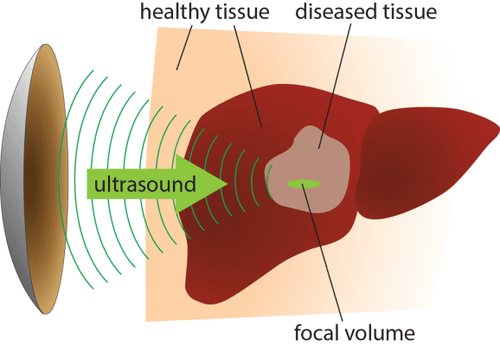This is an automatically translated article.
Posted by Master, Doctor Mai Vien Phuong - Department of Examination & Internal Medicine - Vinmec Central Park International General Hospital
Constipation can be very uncomfortable and even painful at times. Some people find relief from taking magnesium citrate, a supplement that can relax your bowels and provide a laxative effect. Learn more about using magnesium citrate to treat constipation.
1. What causes constipation?
Constipation usually occurs when waste moves slowly through your system. Women and older adults are more at risk of constipation.
Possible causes of constipation include:
A poor diet Dehydration Certain medications Lack of exercise Nervous problems or blockages in your colon or rectum Problems with your pelvic muscles Certain health conditions, such as diabetes, pregnancy, hypothyroidism, hyperparathyroidism, or other hormonal disorders Tell your doctor if you notice changes in your stool or your bowel habits. They can help you determine the cause of your constipation and rule out serious health conditions.
2. How can you use magnesium citrate to treat constipation?
You can usually treat occasional constipation with over-the-counter (OTC) medications or supplements, such as magnesium citrate. This supplement is an osmotic laxative, which means it helps relax your bowels and pull water into your intestines. Water helps soften and coagulate your stools, making them easier to pass.
Magnesium citrate is relatively gentle. It won't cause an emergency or urgent need to go to the bathroom, unless you take too much. You can find it in many drug stores and don't need a prescription to buy it.
Your doctor may also prescribe magnesium citrate to help you prepare for certain medical procedures, such as a colonoscopy.

3. Who can safely use magnesium citrate?
Magnesium citrate is safe for most people to use in appropriate doses, but some people should avoid it. Talk to your doctor before taking magnesium citrate, if you have:
Kidney disease Abdominal pain Nausea Vomiting A sudden change in your bowel habits lasting more than a week A diet restricted in magnesium or sodium Magnesium citrate may also interact with certain medications. For example, if you are taking certain medicines to treat HIV, magnesium citrate may prevent these medicines from working properly. Ask your doctor if magnesium citrate could affect any medications or supplements you are taking.
4. What are the side effects of magnesium citrate?
Although magnesium citrate is safe for most people, you may experience side effects after using it. The most common side effects were mild diarrhea and upset stomach. You may also experience more serious side effects, such as:
Severe diarrhea Severe stomach pain Blood in your stools Dizziness Fainting Sweating Weakness Allergic reactions, which can cause a rash , shortness of breath or other symptoms Nervous system problems, which can cause confusion or depression Cardiovascular problems, such as low blood pressure or irregular heartbeat Metabolic problems, such such as hypocalcemia or hypomagnesaemia If you experience any of these side effects, stop taking magnesium citrate and call your doctor at once.

5. What is the appropriate form and dosage?
Magnesium citrate is available as an oral solution or tablet, sometimes combined with calcium. If you're taking magnesium citrate for constipation, choose an oral solution. People often use Magnesium tablets as a regular mineral supplement to increase magnesium levels.
Adults and older children, 12 years of age and older, can usually take up to 300ml of magnesium citrate oral solution with 250ml of water. Younger children, aged 6 to 12 years, can usually take up to 150ml of magnesium citrate oral solution with 250ml of water. Talk to your doctor to find out if these standard dosages are safe for you or your child. Follow the instructions on the bottle.
If your child is 3 to 6 years old, ask your doctor about the right dosage for them. Magnesium citrate is not recommended for children under 3 years of age. If your infant or young child is constipated, your doctor may recommend other treatment options.
What is the outlook?
After taking magnesium citrate for constipation relief, you should expect the laxative effect to begin in one to four hours. Contact your doctor if you notice side effects or do not have a bowel movement. Your constipation could be a sign of a more serious underlying health condition.
See your doctor if magnesium citrate and lifestyle changes don't relieve your constipation. They can help you identify the source of your constipation and suggest alternative treatment options. Constipation is normal at times, but sudden or prolonged changes in your bowel habits could be a sign of a more serious underlying condition.
The above information is for reference only. Patients with gastrointestinal abnormalities, it is best to consult a doctor before deciding to treat with any drug.
Department of Endoscopy - Gastroenterology is one of the key specialties at Vinmec International General Hospital. For timely examination, advice and treatment of digestive diseases, you can contact Vinmec Health System nationwide or register online on the website for service.
Please dial HOTLINE for more information or register for an appointment HERE. Download MyVinmec app to make appointments faster and to manage your bookings easily.
ReferencesCitroma magnesium citrate – Citroma magnesium citrate liquid. (2018). dailymed.nlm.nih.gov/dailymed/drugInfo.cfm?setid=a58a14bf-3e49-4216-a8c8-cee53a620c80 Constipation. (2015). my.clevelandclinic.org/health/diseases/4059-constipation Mayo Clinic Staff. (2018). Constipation. mayoclinic.org/diseases-conditions/constipation/symptoms-causes/syc-20354253 Nutrition problems and their solutions. (2014). my.clevelandclinic.org/health/articles/9957-nutrition-problems-and-their-solutions














